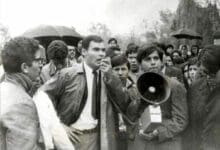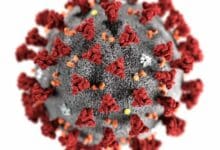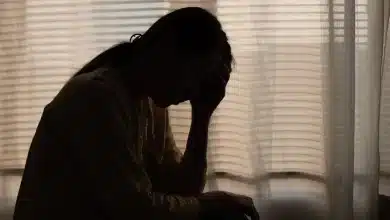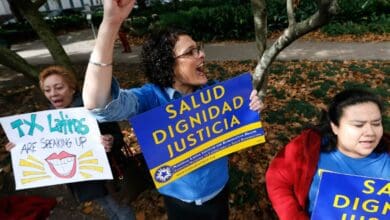Letter About Fear, Coronavirus, and the SB 1070
"You’ll get through this because you’re not alone, because you learned to adapt. SB 1070 helped show you that you could build a community, a mutual aid network of people around you..."
Dear undocumented workers,
I wanted to write this letter because I know you are tough, but this pandemic is testing the limits of everyone.
Some people complain about running out of ideas to play with their children at home (which is hard), others are adjusting to the new realities of showing up to work every day in front of a video camera with a clean blouse and a pair of pajamas at the bottom. But not you.
You still show up to work in person. You wake up at the crack of dawn to make sure breakfast is ready for your children before you leave to harvest the next bunch of veggies we, hands protected by gloves, will buy in our organic food stores.
Perhaps you have papers now, and you put on your scrubs before tending to the next patient who may or may not have COVID-19, while a court decision looms large over your head like a sentence: Will I be able to stay, will I be told to go?
You take an extra sweater for the chilly air of the morning so you don’t get cold while you wait for the bus to come and baby-sit our children. You show up to clean bathrooms in a mansion with the makeshift mask that your aunt made you with a coffee filter inside, and you work for people that “don’t believe in COVID-19,” but still purchased a ventilator, “just in case.”
You put yourself in the hands of God, a God that belongs to no religion, a God you’re willing to lend to anyone and that doesn’t leave anyone outside, not even the ones that want to make you suffer, the God of the resilient people that put their faith in family and their actions in love.
If you live in Arizona, you’ve been here before. Ten years ago, you faced a different type of pandemic when the state criminalized your very existence.
Remember SB 1070? The newspapers called it the “papers-please” law, as if there was some measure of politeness about it when there wasn’t. The legislators who sponsored the Arizona bill didn’t hide their goal. They waged a war to wear you down. They called it “attrition through enforcement.” They would make social conditions so inhospitable and your life so miserable that you would leave the state. And some of you did. Not just you, but all your family. You took your U.S. citizen children out of school, leaving empty classrooms. You left the homes you had kept in spite of a loan shark, and took your hopes and dreams to states that would welcome you. You even went to Canada. So did your money.
As a notepad-in-hand Spanish media reporter in my 30s, I remember Phoenix got very quiet when you left. I remember empty supermercados and hole-in-the-wall restaurants. The car dealerships where you shopped near downtown felt like cemeteries. So many of you left that Arizona lost 100,000 Latinos in the aftermath of SB 1070. An economic boycott started in protest, costing the state $141.4 million in convention income during the first year the law took effect.
We needed you, but we only said something when it hurt our pockets. Two years after SB 1070 took effect, 60 CEOs wrote to the State Legislature to stop the passage of another stream of bills that among many things tried to do away with birthright citizenship. Arizona had to learn the hard way that marginalizing and making life unbearable for those most vulnerable would come to bite us in the butt.
Yet, most of SB 1070 survived in the U.S. Supreme Court. And you were pushed to live further into the shadows. You learned what it was to take shelter in place.
You stood your ground and weathered the storm. And just like so many of us are now signing advance directives in case we get sick with COVID-19, you signed powers of attorney over your assets, and even for the care of your children. So in case something happened to you, they would be well taken care of.
A simple trip to the grocery store was scary. It was a drive-without-papers roulette. There was no way of knowing when it was going to be your turn to be deported. There was no PPE that could hide the color of your skin or the accent that came out of your mouth. That’s why you learned to remain silent. You carried your immigration attorney’s phone number just in case, and a little stamp of El Divino Niño or La Virgen de Guadalupe to protect you. You convinced yourself that you weren’t sick and pushed through the flu to avoid setting foot in a hospital, just in case they were also ready to turn you into immigration.
Your children grew up taking shelter in place, hiding in the shadows, because like one smart girl once told me: “If they had to hide, I have to hide.” They tried to make you invisible, but they failed to recognize that you’re essential. We may come to realize now that it could come at a deadly cost. Not just for you but the rest of us. If you get sick, your neighbors will too.
It must be demoralizing to know you continue to work and pay taxes, but there won’t be a $1,200 or $1,700 check arriving in your mailbox.
But I know that you’ll get through this, not because you’re tough and invincible. You’re not a martyr.
You’ll get through this because you’re not alone, because you learned to adapt. SB 1070 helped show you that you could build a community, a mutual aid network of people around you. And that community would post in social media when they saw a raid in your neighborhood, or a couple of undercover ICE SUVs at a trailer park. If someone was taken, you took in their children console them and fed them. You showed up with tamales, and menudo. You sold your furniture to bail out your family members from immigration detention. And when it was your turn to be released, still wearing your work shirt, with the logo of the carwash that employed you, you gave away your tennis shoes to someone else with only flip flops.
We could learn a lot from you. Not because you are perfect. You still will make mistakes, just like the rest of us. We have tried to pin all the crimes of the world over your back, as if there was something that made you uniquely evil. Meanwhile, you take a chance every day to show up to work with hardly a “thank you.”
It’s time for action. The rest of us will step up to the plate and show you in our actions and decisions that your life matters, too. Your life is more essential than your work.
Con admiración y afecto,
Valeria Fernández











